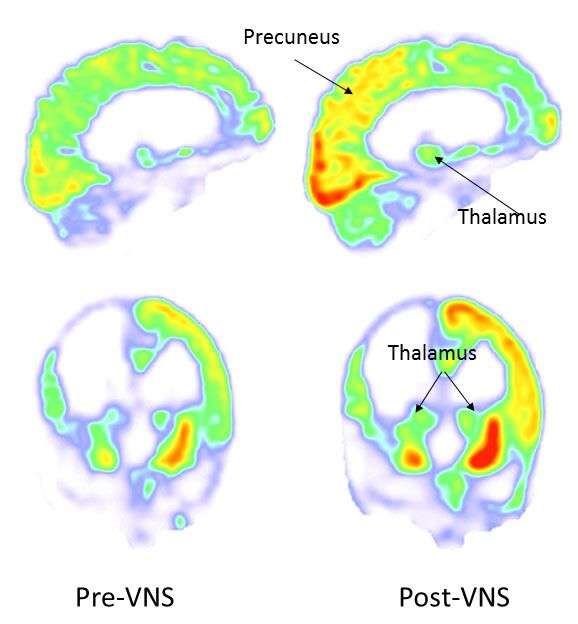Researchers at the French National Center for Scientific Research have made a groundbreaking discovery by using nerve stimulation to induce signs of consciousness in a man who has been in a vegetative state for almost 15 years. This remarkable feat challenges previous beliefs about the limits of restoring consciousness in such cases and offers hope to patients and their loved ones.
The vagus nerve, which connects the brain to various parts of the body, was targeted for stimulation due to its known role in regulating wakefulness and alertness. Dr. Angela Sirigu, leading the study, hypothesized that stimulating this nerve could bring about changes in patients with unresponsive wakefulness syndrome.
The chosen patient had been unresponsive for 15 years following a car accident at the age of 20. After a month of vagus nerve stimulation, the man showed remarkable progress, demonstrating the ability to follow instructions, track moving objects with his eyes, and display increased brain activity on EEG scans.
The findings, published in Current Biology, not only upgraded the patient’s status to “minimal consciousness” but also shed light on the brain’s plasticity and potential for repair even in seemingly hopeless cases. The study highlights the importance of further research on the role of the parietal cortex in guiding neural activity across different brain regions.







